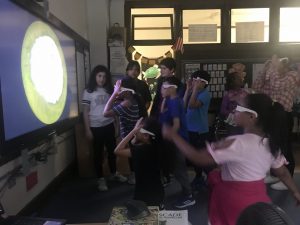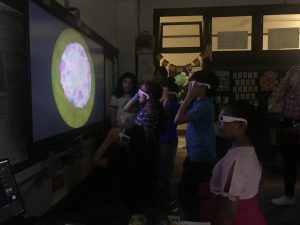Presentations
Our last day at LCCS comprised of mini presentations by Parsons and LCCS students for the LCCS teachers and parents. At the end of my team’s presentation, our LCCS teammates had the opportunity to talk about their experiences and explain some aspects of Trash Trivia to the audience. Hearing them express how they found the co-design process and seeing them reflect on their experiences gave us valuable insight into the co-design process itself. The students commented positively about how they felt part of the process and liked seeing their drawings made into animations. It was very obvious for me when I was editing the short summary video that the students actually had a lot of say in all aspects of the game. Equally importantly, every person was involved in one aspect of Trash Trivia or another in one way or another. The summary video in my opinion shows this quite well as there are scenes showing everyone engaged. Finally, seeing the students’ reaction to the video was quite nice, especially when the students saw themselves in the video.
Chatting over pizza
After the presentations, the Parsons and LCCS students mingled over pizza. I found this part really enjoyable because we were in a social context, which was different from the co-design or teaching contexts we were in before. We made jokes and asked each other non-class-related questions which for me personally felt like it allowed me to see them in a different light. I enjoyed getting to know everyone and thoroughly enjoyed working with such smart kids.

